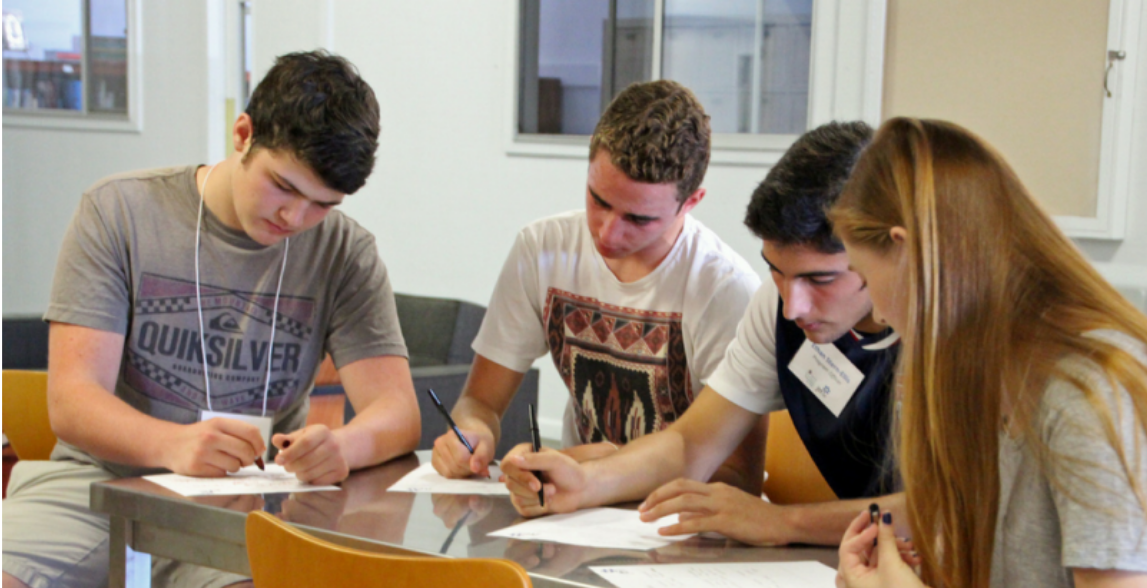By, Danielle Segal, JTFN Program Manager
It’s nearly site visit season! And that means organizing buses, trains, carpools and Skypes in order to bring the questioning teen board members in direct contact with the applying organizations. But what do you do if there are too many organizations for the teens to visit? How can the teens do their due diligence and investigate the potential grantees if they don’t have enough hours in the day to get some facetime with all the organizations? Divide and conquer!
In this week’s Torah portion, Yitro (Exodus 18:1-20:23), Moses’s father-in-law is shocked at the amount of work that Moses is doing…
– And now, we zoom into an actual conversation* between Moses and his father-in-law, Jethro –
JETHRO: Hey Moses, my favorite son-in-law, how’s it going? You look tired.
MOSES: Good man, although I’ve been really busy trying to settle disputes and help all these people. The struggle is real.
JETHRO: Dude, you are going to wear yourself out! You can’t carry on taking on this amount of work.
MOSES: But the people want to hear my opinion because I can communicate with Adonai IRL.
JETHRO: Why don’t you get a team of people to help you? You can select people who you trust and they can handle the day-to-day and then they can just consult you if there is a major issue. That way, you won’t burn yourself out.
MOSES: That’s a great idea! I’ll delegate responsibilities and find some capable people to share the work. Thanks Jethro.
Jethro: No problem, dude.
*Might not represent actual conversation. You can read the original Torah text at Sefaria.org.
Jethro recognizes that Moses cannot do all the work alone. He needs to trust others with part of the workload, dividing up the tasks and delegating to those who can help. Moses does not become less of a leader because he is relinquishing responsibility to others. On the contrary, it allows him to become a better leader since he is no longer burned out, and it allows others to be brought into the fold of responsibility.
At this stage in our teen philanthropy programs, we harness these methods that we see so beautifully demonstrated in our Torah: each teen might not conduct a site visit to all the nonprofits, but instead, they might visit one or two, acting as representatives and ambassadors for the whole group. The teen can then report back and give their opinion, so that a group decision can be made. The notion of leadership, therefore, does not just fall on one individual, but instead, the whole group contributes to the fact finding, information distilling and question asking. It’s important to communicate to the teens that they are stepping up as leaders on behalf of their peers. It is delegation just as Jethro suggested to Moses.
– Meanwhile, back in the wilderness* –
JETHRO: Hey Moses! How did that delegation thing work out for you?
MOSES: So great! I did just as you said and it’s been LEGEND-wait-for-it-DARY.
JETHRO: That’s excellent!
MOSES: Do you think other people will want to use this method too?
JETHRO: Totally man! I think there will be groups of amazing teens in Jewish teen philanthropy programs, wanting to be changemakers in our world, who will share the responsibility and delegate when they conduct site visits to applying nonprofits.
MOSES: Wow that’s a very specific example father-in-law! What’s a Jewish teen philanthropy program?
JETHRO: Ah my son-in-law, listen and learn…
*events may or may not have occurred as portrayed… most likely not… but you get the idea!
